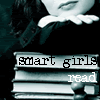
The book reports return!!
So I was in the mood for something with a little meat to it. Something that would make me think. And since I did a stupendous job of avoiding American literature during college, there's a lot of it for me to read, including this semi-autobiographical 1952 work by John Steinbeck. (The Hamiltons are based on the history of his own family.)
Now I think that every teenager who has painfully slogged through "Of Mice and Men" in high school English should be handed a copy of this instead.
It won't happen, first because the majority of high school English classes are abominations, reading-list driven death marches of forced imagery and rote memorization that serve to beat a love of literature out of students instead of instilling one in them. Besides, "Eden" has sex and violence, whores and disobedient children -- we wouldn't want to give the kiddies any ideas, would we??
Anyway ...
Thick with Biblical imagery, "Eden" is the story of Adam Trask, a boy bedeviled by his overbearing, distant father and caught in a Cain and Abel relationship with his half-brother Charles. Into the mix is thrown Cathy, a self-centered wench who destroys all she touches and who is one of the most evil characters I've seen in a book in a long time.
Adam marries Cathy and takes her to California (poor sap) but he ends up raising their twins, Aron and Caleb, on his own -- but for the most part, he's a pretty poor parent, being far too wrapped up in his own troubles to do more than be a silent observer in the boys' lives until they're teenagers. And by then, the damage has been done.
Most of what I've read about "Eden" focuses on the mirrored Cain and Abel stories. But that didn't interest me as much as the concept of "timshel."
The Hebrew word translates as "thou mayest," and it captures the conflict of personal choice versus predestined fate. Steinbeck tells the readers that they, like the characters, have the ability to choose their own path in life. Only by those choices can they break from their pasts. In granting Aron timshel, Adam sets him free.
Not to say this is a perfect book -- I found myself cursing it and enjoying it at the same time. It's overblown and overwritten in parts, and the parallel story of the Hamiltons sometimes seems tossed in for no good reason. It's sentimental even as its non-judgmental, but the characters at times are more concepts than people -- Lee is too good, Cathy's too much of a monster, Sam Hamilton is too quirky and wise. It's the minor characters that appear the most real.
But Steinbeck has a wonderful touch with dialogue, and his descriptions make turn of the century California come alive. There's a reason this has been a classic for more than 50 years.

No comments:
Post a Comment